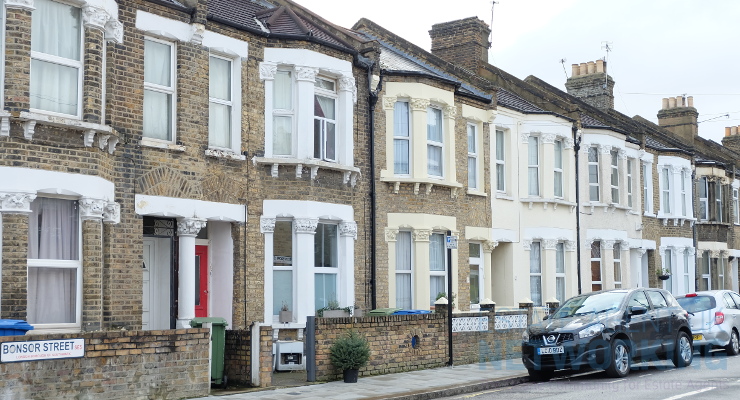Lockdown rental stock shortage will see rents and deposits climb
Research by rental deposit replacement scheme, Ome, has highlighted how a lockdown reduction in rental stock entering the market could result in higher rental and deposit costs for UK tenants.
Ome investigated the percentage of buy to let mortgage loans approved over the last five years as a percentage of all loans. The figures from the Financial Conduct Authority show that the number of landlords entering the market with new stock has slowly declined every year since 2015 with an average annual drop of -1%.
At the same time, the value of the buy to let market has also diminished at an average annual rate of -1% a year, now worth £35,661m compared to £37,424m in 2015.
Despite a declining level of stock entering the market, there has been growing demand which has seen the average UK rent climb by an annual average of 4% each year since 2015, now at £743 a month compared to £627 in 2015. The average cost of a rental deposit has also increased at an average rate of 3% each year over the last five years.
A similar increase this year would see the average rent hit £776, while the average deposit would reach almost £900 despite the recently introduced five week deposit cap. However, Ome predicts that any lasting reduction in rental stock due to the current pandemic could result in a much larger increase in cost for UK tenants in the long term.
Co-founder of Ome, Matthew Hooker, commented:
“Through no fault of their own, agents and landlords are facing a very tough few months with some tenants unable to pay their rent and some landlords facing much longer void periods due to a drop in market activity.
The buy to let market has already seen a notable decline in appetite following increases to stamp duty and changes to tax relief, with the number of buy-to-let mortgages declining steadily since 2016. It is no coincidence that rents have also climbed rapidly during this time.
As a result of these latest market developments, we could see many decide to exit the sector, or opting to refrain from a buy to let investment for the foreseeable future at least. This further reduction in stock would have grave implications for the nation’s tenants who have already seen the cost of renting increase due to an imbalance between demand and supply.
The industry has already predicted an increase in rental costs due to the ban on tenant fees but with even less stock now likely to be available, this increase in rent and the upfront deposit required to secure a property could be far higher than predicted.
Of course, there are things you can do to lessen the impact of this increase before it materialises. Looking for, and securing a property now, can be easily done online with the view of moving post lockdown when it is safe to do so.
Opting for a deposit replacement scheme can also alleviate some of the upfront cost and essentially pay for your first month’s rent at the same time.”
|
United Kingdom
|
2015
|
2016
|
2017
|
2018
|
2019
|
Average Annual change
|
|
Buy to let (% of gross advances)
|
16.81
|
16.04
|
13.43
|
13.02
|
12.96
|
|
|
change
|
-0.76%
|
-2.62%
|
-0.40%
|
-0.07%
|
-1%
|
|
|
Buy to Let VALUE – £millions
|
37,424
|
40,129
|
35,182
|
35,731
|
35,661
|
|
|
change
|
7.2%
|
-12.3%
|
1.6%
|
-0.2%
|
-1%
|
|
|
Average rent
|
£627
|
£643
|
£656
|
£677
|
£743
|
|
|
change
|
2.6%
|
1.9%
|
3.2%
|
9.8%
|
4%
|
|
|
Average Deposit
|
£758
|
£766
|
£777
|
£790
|
£858
|
|
|
Change
|
1.1%
|
1.4%
|
1.7%
|
8.6%
|
3%
|
|
|
Sources
|
||||||
|
Lending statistics – Buy to Let
|
||||||
|
Average private rent statistics
|
||||||
|
England
|
||||||
|
Wales
|
||||||
|
Scotland
|
||||||
|
Northern Ireland
|
||||||









